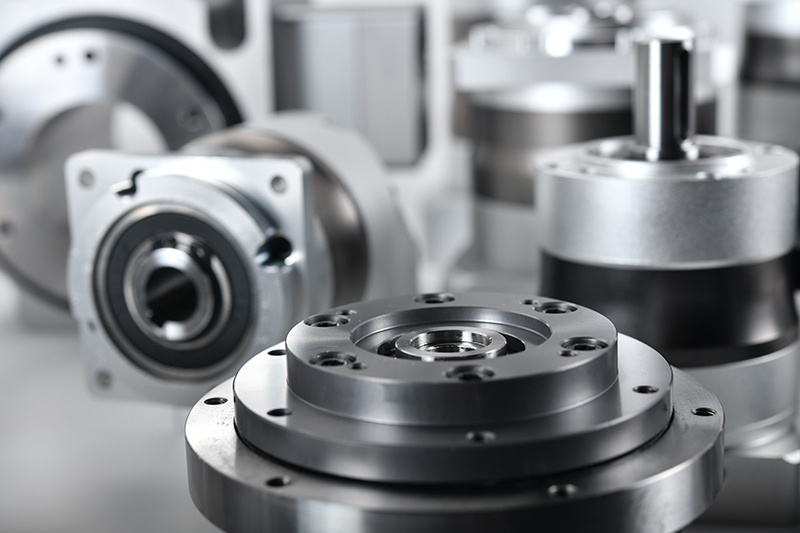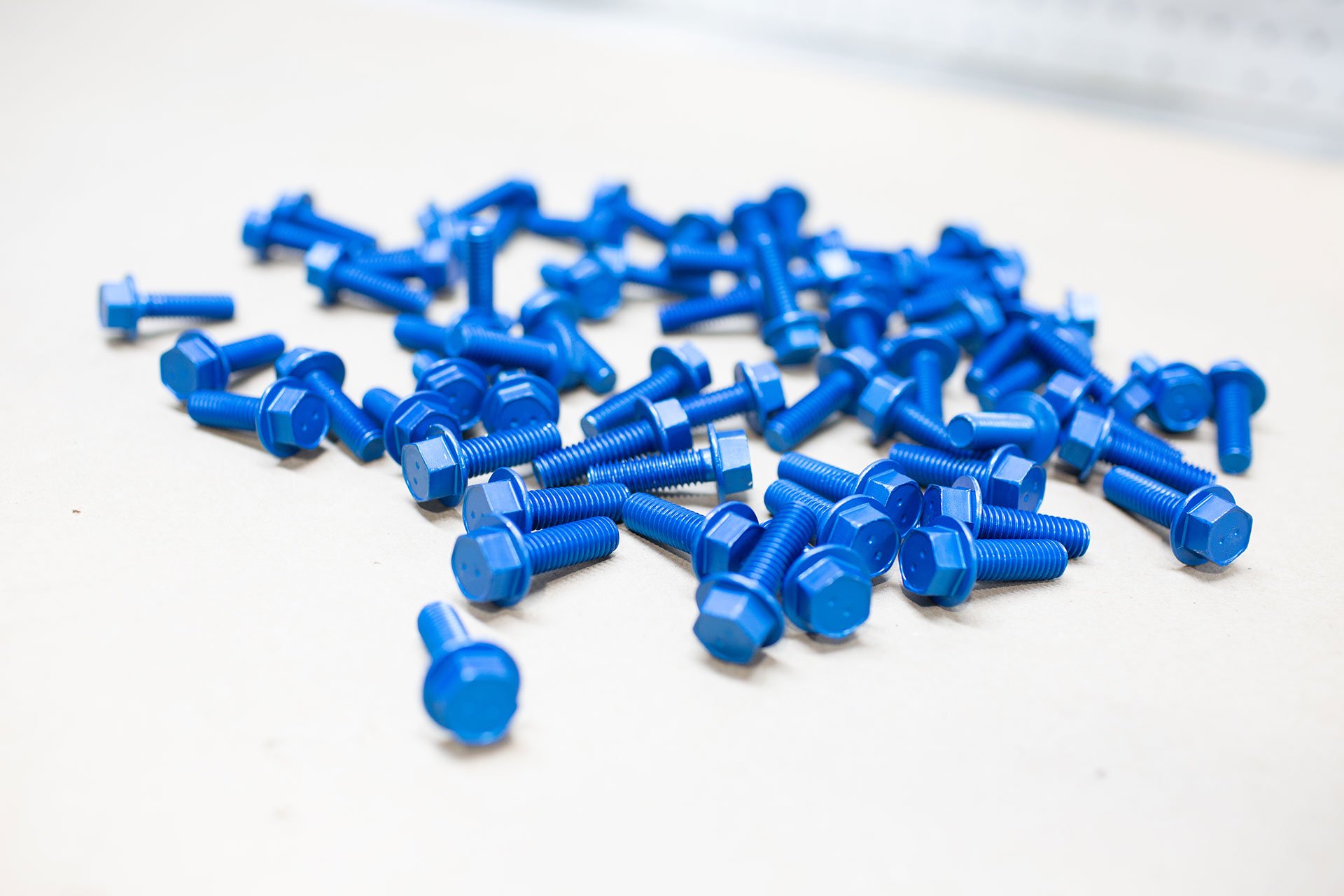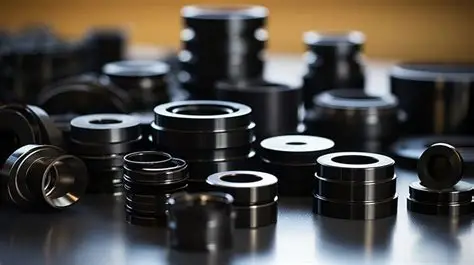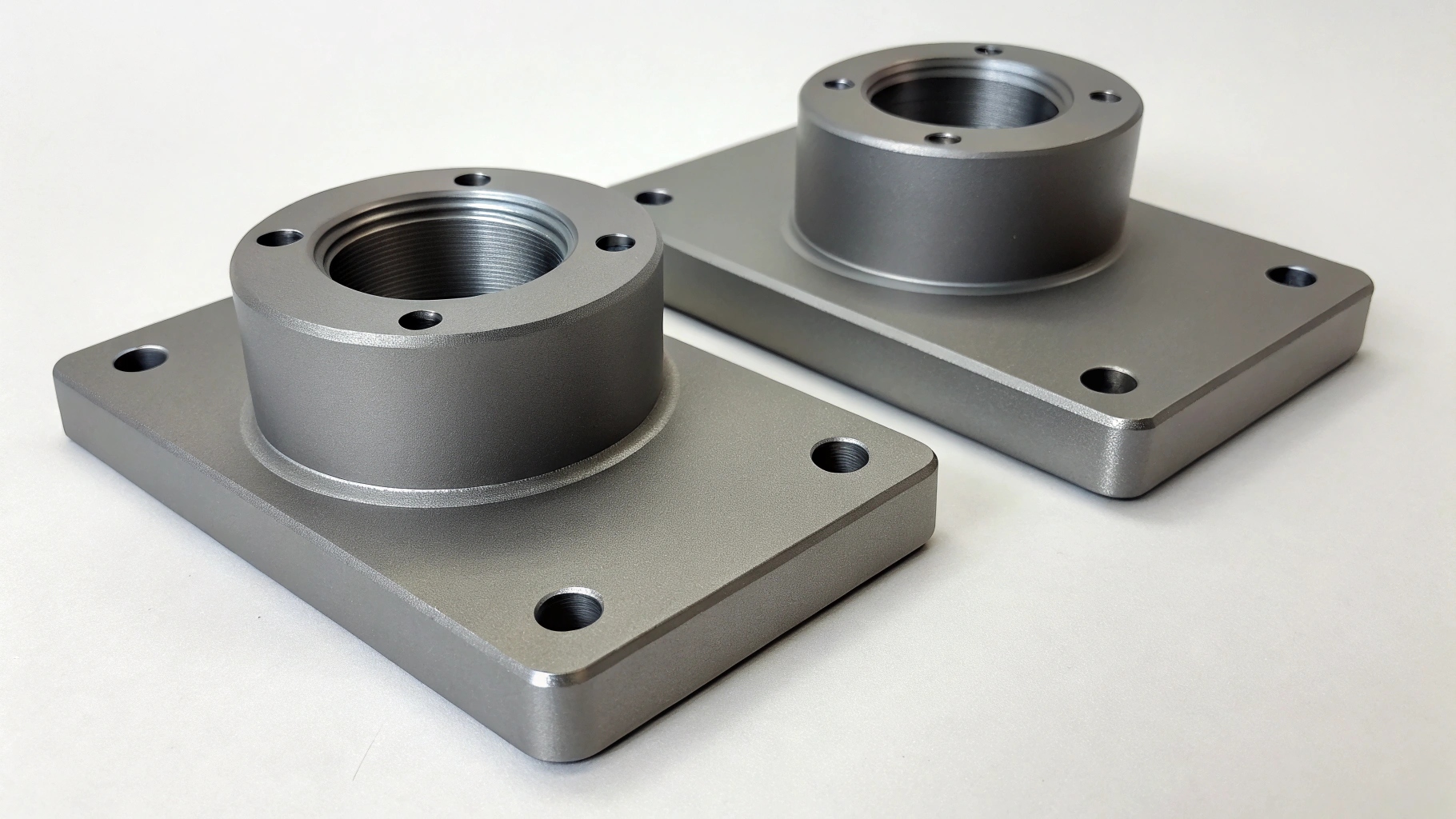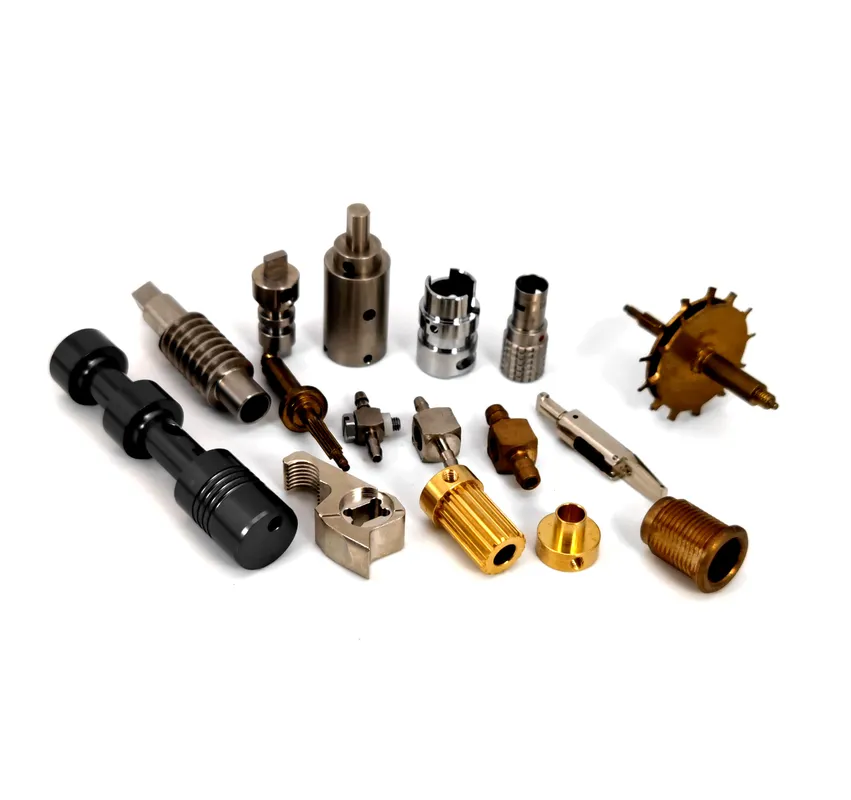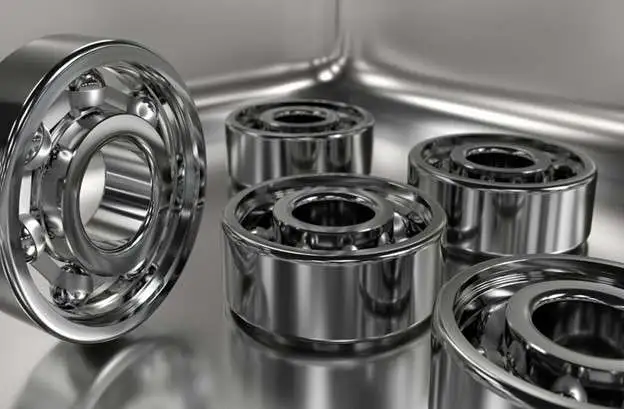Precision Machined Components for Robotics and Automation: Engineering the Future of Automated Systems
The Critical Role of Precision Machining in Robotics and Automation
The robotics and automation industry represents one of the most dynamic and rapidly evolving sectors in modern manufacturing, where precision, reliability, and performance are paramount. Precision machined components for robotics and automation form the fundamental building blocks that enable the sophisticated movements, accurate positioning, and reliable operation of automated systems across countless industries. These specialized components demand exceptional dimensional accuracy, superior surface finishes, and unwavering reliability to ensure seamless integration and long-term performance in demanding automated environments. Precision machined components for robotics and automation encompass a comprehensive range of manufactured parts that transform conceptual automation designs into functional, high-performance robotic systems capable of operating with micron-level precision and repeatability.
The evolution of Industry 4.0 and smart manufacturing has dramatically increased the requirements for precision machined components for robotics and automation. From collaborative robots working alongside human operators to fully automated production lines and advanced material handling systems, the demand for precisely manufactured components continues to drive innovations in CNC machining technologies and manufacturing methodologies. At JLYPT CNC Machining, we have established ourselves as industry leaders in producing precision machined components for robotics and automation, developing specialized manufacturing processes that consistently deliver the exceptional quality and reliability required by leading robotics manufacturers and system integrators.
Material Selection for Robotic and Automation Components
Advanced Materials for Demanding Applications
The selection of appropriate materials is crucial for manufacturing high-performance precision machined components for robotics and automation. Different robotic applications demand specific material properties and machining approaches:
Aluminum Alloys for Lightweight Structures
-
6061-T6 Aluminum: Versatile general-purpose alloy offering excellent strength-to-weight ratio and good machinability
-
7075-T6 Aluminum: High-strength aerospace-grade aluminum for critical structural components and arm segments
-
2024-T3 Aluminum: Superior fatigue resistance for dynamic components subject to repeated motion cycles
-
Cast Aluminum Alloys: For complex housing components and structural elements requiring specific mechanical properties
Steel Alloys for Strength and Durability
-
4140 Steel: Chromium-molybdenum alloy steel providing excellent strength and toughness for gears and shafts
-
4340 Steel: Nickel-chromium-molybdenum steel offering superior strength and impact resistance
-
Stainless Steel 304/316: Corrosion-resistant alloys for food processing, medical, and cleanroom applications
-
Tool Steels: High-carbon, high-chromium steels for wear-resistant components and cutting elements
Engineering Plastics and Composites
-
Delrin (POM): Low-friction acetal resin for bearings, bushings, and sliding components
-
Nylon (PA6, PA66): Excellent wear resistance and mechanical strength for gears and guides
-
PEEK: High-performance thermoplastic for extreme temperature and chemical resistance
-
ULTEM (PEI): High-temperature thermoplastic with excellent dimensional stability
Table: Material Properties for Precision Machined Components for Robotics and Automation
| Material | Tensile Strength (MPa) | Density (g/cm³) | Primary Applications | Machining Considerations |
|---|---|---|---|---|
| 6061-T6 Aluminum | 310 | 2.70 | Robot arms, frames, mounting plates | Excellent machinability, Good surface finish |
| 7075-T6 Aluminum | 572 | 2.81 | Critical structural components, Joints | High strength, Requires sharp tooling |
| 4140 Steel | 655 | 7.85 | Gears, shafts, actuator components | Good machinability, Responds well to heat treatment |
| 304 Stainless Steel | 505 | 8.00 | Food processing robots, Medical automation | Work hardens, Requires rigid setup |
| Delrin (POM) | 70 | 1.41 | Bearings, Bushings, Guides | Low friction, Excellent dimensional stability |
Specialized Materials for Specific Applications
High-Temperature Applications
-
Inconel 718: Nickel-based superalloy for high-temperature robotic applications
-
Titanium Alloys: For extreme temperature and corrosive environment applications
-
Ceramic Composites: For specialized high-temperature and wear-resistant components
Corrosion-Resistant Requirements
-
316 Stainless Steel: Superior corrosion resistance for harsh environment applications
-
Marine-Grade Aluminum: For robotics operating in marine or high-humidity environments
-
Platinum-Cured Silicone: For medical and food-grade automation applications
Advanced Machining Technologies for Robotic Components
Multi-Axis Machining Capabilities
5-Axis Simultaneous Machining
-
Complex contour machining for robotic arm segments and end-effector components
-
Reduced setup requirements improving accuracy and manufacturing efficiency
-
Optimal tool orientation maintaining perpendicularity to complex surfaces
-
Single setup machining for complete component processing of complex robotic parts
High-Speed Machining Applications
-
Optimized cutting parameters for specific robotic component materials
-
Advanced toolpath strategies including trochoidal and adaptive clearing
-
Thermal management through controlled machining parameters and cooling strategies
-
Surface finish optimization for bearing surfaces and precision interfaces
Precision Machining Techniques
Micro-Machining Capabilities
-
Small feature machining for sensor mounts and precision alignment features
-
High-spindle speed applications up to 60,000 RPM for fine detail work
-
Micro-tooling technology for features as small as 0.1mm in compact robotic systems
-
Sub-micron accuracy for critical robotic positioning components
Advanced Turning Operations
-
Multi-axis turn-mill centers for complex rotational robotic components
-
Live tooling applications for complete part processing in single setup
-
C-axis contouring for complex peripheral features on robotic components
-
Precision boring operations for bearing and linear guide surfaces
Table: Machining Tolerances for Precision Machined Components for Robotics and Automation
| Component Type | Typical Tolerance Range (mm) | Surface Finish (μm Ra) | Critical Features | Measurement Methods |
|---|---|---|---|---|
| Robot Arm Segments | ±0.025-0.050 | 0.8-1.6 | Mounting interfaces, Bearing surfaces | CMM, Laser tracking |
| Gear Components | ±0.005-0.015 | 0.2-0.4 | Tooth profile, Pitch diameter | Gear analyzers, CMM |
| Linear Guide Rails | ±0.008-0.020 | 0.1-0.3 | Flatness, Straightness | Surface plates, CMM |
| End Effector Components | ±0.010-0.030 | 0.4-0.8 | Gripping surfaces, Mounting features | Vision systems, CMM |
| Sensor Mounting Plates | ±0.005-0.012 | 0.2-0.4 | Positional accuracy, Flatness | CMM, Optical flats |
Technical Requirements for Robotic and Automation Components
Dimensional Accuracy and Repeatability
Positioning and Alignment Requirements
-
Geometric tolerancing including flatness, parallelism, and perpendicularity
-
True position tolerances for mounting features and interface points
-
Concentricity and runout requirements for rotating components and bearing surfaces
-
Surface profile tolerances for complex contoured robotic components
Assembly and Integration Considerations
-
Interchangeability requirements enabling seamless component replacement
-
Modular design compatibility supporting system scalability and reconfiguration
-
Thermal expansion compensation for precision components operating in varying temperatures
-
Wear compensation design for maintaining accuracy throughout component lifecycle
Surface Integrity and Functional Requirements
Bearing and Wear Surfaces
-
Surface finish optimization for reduced friction and extended service life
-
Hardness requirements for wear-resistant surfaces in high-cycle applications
-
Lubrication compatibility with surface textures and material properties
-
Corrosion resistance for components operating in challenging environments
Dynamic Component Requirements
-
Fatigue resistance for components subject to repeated loading cycles
-
Vibration damping characteristics for smooth robotic operation
-
Resonance avoidance through proper material selection and design
-
Impact resistance for components subject to unexpected loads or collisions
Quality Assurance for Precision Machined Components for Robotics and Automation
Dimensional Metrology and Verification
Advanced Measurement Technologies
-
Coordinate measuring machines with scanning capabilities for complex geometries
-
Laser tracking systems for large robotic component verification and alignment
-
Optical comparators for rapid 2D feature verification and geometric tolerance assessment
-
White light scanning for complex surface form verification and reverse engineering
In-Process Quality Control
-
On-machine probing for real-time dimensional verification during machining
-
Tool setting and breakage detection systems ensuring continuous process control
-
Surface finish measurement integrated into machining processes for critical surfaces
-
Statistical process control with real-time data collection and analysis
Performance Validation Testing
Functional Testing Protocols
-
Assembly verification ensuring proper fit and function with mating components
-
Motion testing for components subject to dynamic operation and positioning
-
Load testing validating performance under expected operating conditions
-
Cycle testing for components subject to repeated motion and loading
Environmental Testing
-
Thermal cycling validating dimensional stability across operating temperature ranges
-
Vibration testing ensuring performance under expected operational vibrations
-
Corrosion testing for components operating in challenging environments
-
Accelerated life testing predicting long-term performance and reliability
Case Studies: Precision Machined Components for Robotics and Automation Applications
Case Study 1: Collaborative Robot Arm Components
Challenge: A leading robotics manufacturer required precision machined components for robotics and automation for a new generation of collaborative robots featuring advanced force sensing and safety systems. The components demanded exceptional dimensional accuracy, lightweight construction, and reliable performance in human-collaborative environments.
Precision Machined Components for Robotics and Automation Solution:
JLYPT implemented a comprehensive manufacturing strategy:
-
5-axis simultaneous machining of 7075-T6 aluminum for complex arm segments
-
High-speed machining with specialized tooling for thin-walled sections and weight reduction
-
In-process measurement with touch probe systems for real-time dimensional compensation
-
Surface treatment optimization for both aesthetic requirements and functional performance
-
Assembly validation ensuring seamless integration with sensing systems and actuators
Results:
-
Achieved weight reduction of 25% while maintaining structural integrity and stiffness
-
Dimensional accuracy within ±0.015mm on all critical mounting and bearing surfaces
-
Surface finishes of 0.4μm Ra on sliding and bearing surfaces exceeded requirements
-
Successful certification for collaborative operation in industrial environments
Case Study 2: Automated Material Handling System Components
Challenge: An automation systems integrator needed precision machined components for robotics and automation for a high-speed material handling system requiring components with exceptional wear resistance, dimensional stability, and reliable performance in continuous operation.
Precision Machined Components for Robotics and Automation Solution:
Our specialized approach included:
-
Precision grinding of 4140 steel components after heat treatment for optimal wear resistance
-
Multi-operation machining with complete processing in optimized sequence
-
Custom fixture design for complex components requiring multiple machining operations
-
Surface enhancement processes including specialized coatings for wear resistance
-
Performance testing under simulated operating conditions to validate design
Results:
-
Wear resistance improved by 40% compared to previous component designs
-
Dimensional stability maintained within ±0.010mm under continuous operation
-
99.9% reliability achieved through 1,000,000+ cycle testing
-
System throughput increased by 20% through improved component performance
Case Study 3: Medical Robotics Positioning System
Challenge: A medical device company required precision machined components for robotics and automation for a surgical robot positioning system demanding sub-micron accuracy, medical-grade materials, and compliance with stringent regulatory requirements.
Precision Machined Components for Robotics and Automation Solution:
JLYPT’s comprehensive manufacturing strategy incorporated:
-
Micro-machining capabilities for precision features and alignment components
-
Medical-grade materials with full traceability and certification documentation
-
Cleanroom manufacturing environment maintaining ISO Class 7 conditions
-
Advanced metrology with sub-micron measurement capabilities
-
Regulatory compliance documentation meeting FDA and medical device requirements
Results:
-
Achieved positioning accuracy of ±0.002mm exceeding surgical requirements
-
All components passed medical-grade certification and biocompatibility testing
-
Successful FDA 510(k) clearance with complete manufacturing documentation
-
Implementation in next-generation surgical robotics systems worldwide
Future Trends in Precision Machined Components for Robotics and Automation
Advanced Manufacturing Technologies
Digital Manufacturing Integration
-
Digital twin technology for virtual process validation and performance prediction
-
IoT-enabled machining centers providing real-time process monitoring and optimization
-
Predictive maintenance systems minimizing unplanned downtime in manufacturing
-
Cloud-based manufacturing execution systems for seamless data integration and analysis
Intelligent Manufacturing Systems
-
AI-driven process optimization based on material variations and tool condition
-
Machine learning applications for adaptive control and quality prediction
-
Real-time adaptive control responding to process variations and tool wear
-
Automated quality verification reducing human intervention and improving consistency
Material and Design Innovations
Advanced Material Development
-
Nanostructured materials offering enhanced mechanical properties and performance
-
Functionally graded materials enabling optimized properties in different component regions
-
Smart materials with embedded sensing and adaptive capabilities
-
Sustainable materials with improved environmental profiles and recyclability
Design and Manufacturing Integration
-
Generative design optimization creating lightweight, high-strength components
-
Additive and subtractive hybrid manufacturing for complex geometries
-
Integrated sensor embedding during manufacturing processes
-
Custom alloy development for specific robotic applications
According to research from the Robotic Industries Association, the integration of advanced manufacturing technologies is expected to improve robotic component performance by 30-50% while reducing manufacturing costs by 20-35% over the next five years.
Conclusion: Excellence in Precision Machined Components for Robotics and Automation
The manufacturing of precision components for robotics and automation represents a sophisticated field that demands exceptional technical expertise, state-of-the-art equipment, and rigorous quality control. Success in producing precision machined components for robotics and automation requires not only mastery of advanced machining processes but also deep understanding of robotic system requirements, material behavior, and performance validation.
At JLYPT CNC Machining, our commitment to excellence in manufacturing precision machined components for robotics and automation ensures that our clients receive components that enable cutting-edge robotic systems while optimizing performance, reliability, and cost-effectiveness. The future of robotics manufacturing will continue to evolve with technological advancements, material innovations, and increasing system complexities driving ongoing improvements in manufacturing capabilities and component performance.
For robotics and automation organizations seeking expert partners in manufacturing precision machined components for robotics and automation, JLY Precision Technology’s CNC machining services offers comprehensive solutions with demonstrated expertise in precision component manufacturing for advanced automated systems.

